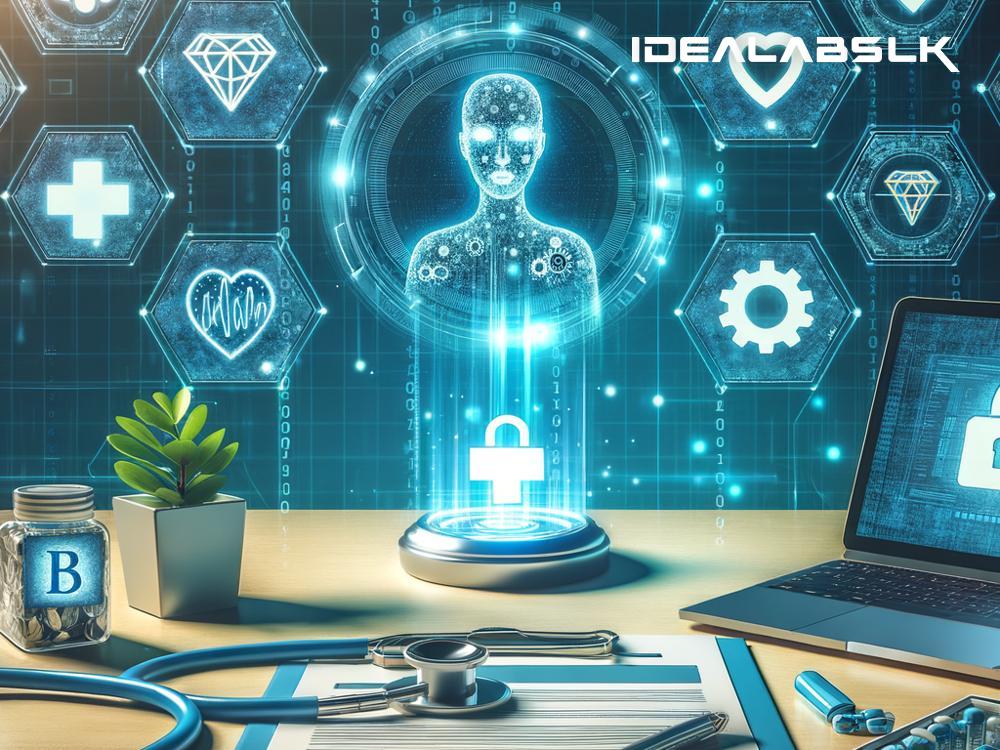In the digital age, protecting our personal health information has become more critical than ever. With the rise of technology, our sensitive data is often at risk of being exposed or misused. However, two groundbreaking technologies, Artificial Intelligence (AI) and Blockchain, are at the forefront of securing our personal health data and ensuring patient privacy. Let's break down how these technologies work to protect us in a world where data breaches are all too common.
Unlocking the Power of AI in Healthcare Privacy
AI, or Artificial Intelligence, might make you think of robots or smart assistants, but it has a profound impact on healthcare, particularly in safeguarding patient data. AI systems can analyze vast amounts of data quickly, identifying patterns or anomalies that might indicate a security threat. Think of AI as a super-efficient security guard that never sleeps, constantly scanning for potential breaches and sealing them before they can cause harm.
For instance, AI can help in detecting unusual access patterns to medical records that might suggest someone is trying to snoop where they shouldn't. It can also automate the process of anonymizing patient data. This means that when researchers or developers need access to health data for creating new treatments or apps, they can use information that's been stripped of personal identifiers, thanks to AI. This ensures that your privacy is maintained while still contributing to the advancements in healthcare.
Moreover, AI-powered chatbots and virtual health assistants, equipped with the knowledge of best privacy practices, can enhance patient experience by providing personalized support without compromising security. They're programmed to handle our data sensitively, making sure only the necessary information is shared and processed.
Blockchain: The Unsung Hero of Health Data Privacy
While AI is a dynamic defender of data, Blockchain is the impenetrable fortress. Originally known for its association with cryptocurrencies like Bitcoin, Blockchain technology has found a significant place in healthcare for its ability to secure patient data.
At its core, Blockchain is a system of recording information in a way that makes it difficult or impossible to change, hack, or cheat the system. It's like a digital ledger that is duplicated and distributed across the entire network of computer systems on the blockchain. Every new record enters as a 'block' and is added to this 'chain' in a linear, chronological order, making it transparent yet incredibly secure.
For patient data, this means once your health information is recorded on a Blockchain, it's nearly impossible for hackers to alter it. Moreover, Blockchain allows for the creation of secure and immutable health records where only authorized individuals can access the data with a unique decryption key. This ensures that your sensitive health information remains private and safe from prying eyes.
Another promising aspect of Blockchain is in managing consent. Often, your health data is shared among numerous healthcare providers, sometimes without your explicit consent. Blockchain technology can streamline consent management by giving patients the power to grant or revoke access to their data through smart contracts — self-executing contracts with the terms of the agreement directly written into code.
Combining AI and Blockchain for Ultimate Protection
When AI and Blockchain technologies work together, they provide a comprehensive solution for protecting health data. AI can quickly identify potential threats and automate privacy measures, while Blockchain provides a secure environment that ensures data integrity and controls access through encryption. This combo can significantly reduce the risk of data breaches, unauthorized access, and other cyber threats.
Furthermore, the collaboration of AI and Blockchain can facilitate a more personalized and efficient healthcare system without sacrificing privacy. It paves the way for secure health data exchange between patients, healthcare providers, and researchers, promoting innovation and improving health outcomes.
Closing Thoughts
The integration of AI and Blockchain in healthcare is revolutionizing how we protect patient privacy and secure personal health data. As these technologies continue to evolve and their adoption in the healthcare industry grows, we can look forward to a future where our health data is safer than ever. This not only ensures our privacy but also builds trust in the digital healthcare systems, encouraging more people to take advantage of the benefits of technology in healthcare.
As discussions around data privacy continue to gain momentum, it's clear that AI and Blockchain will play pivotal roles in shaping the future of secure, privacy-focused healthcare. By embracing these technologies, we're not just protecting individual data; we're safeguarding the integrity of our healthcare system.

